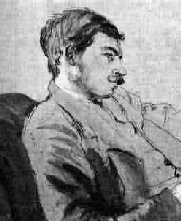|
The Keynesian
Revolution |
 |
Contents
0 -
The General Theory of Employment,
Interest and Money,
1936 by John Maynard
Keynes
I - On Keynes
(1) Introduction
(2) Keynes's Critique of Untheory
(3) The Logic of the General Theory
(4) Conclusion
II - The Neo-Keynesian World
Part 1 - Introduction
Part 2 - Neo-Keynesian Theory
(1) Responses to the General Theory
(2) The Wicksellian Challenge
(3) The Hicks-Hansen IS-LM Model
(4) The Issue of Money Wages
(5) The Neoclassical-Keynesian Synthesis
(6) The Real Balance Debate
(7) Integrating the Keynesian Relationships
(8) The Keynesians Counterattack
Part 3 - Neo-Keynesian Policy
(10) The Impact of Keynesianism on Public Policy
(11) The Theory of Macroeconomic Policy
(12) The International Macroeconomy
(13) The Deficit Debates Again
(14) Inflation and the Phillips Curve
Part 4 - Postscript on Neo-Keynesianism
(15) The End of Neo-Keynesianism?
(16) Epitaph and Anthem
(17) Selected References
III - Keynesian
Business Cycle Theory
(1) The Oxbridge Programme
(2) Multiplier-Accelerator Cycle
Models
Introduction
(A) The
Samuelson Oscillator
(B) Metzler
Inventory Cycles
(C) Hicks's
Trade Cycle
(D) Duesenberry-Smithies
Ratchet Effects
(E) Growth
Cycles: Duesenberry-Pasinetti
(F) Extensions:
Shocks and Money
(3) Endogenous Cycle Models
Introduction
(A) Kaldor's
Non-Linear Cycle
(B) Kalecki's
Distribution Cycle
(C) Goodwin's
Non-Linear Accelerator
(D) Goodwin's
Class-Struggle Model
IV - Keynesian
Growth Theory
V - Disequilibrium Keynesianism
(1) The Clower-Leijonhufvud Critique
(2) The Dual Decision Hypothesis
(3) A Walrasian-Keynesian Synthesis
(4) The Malinvaud Model
(5) Conjectural Equilibrium
Top
Back
|
